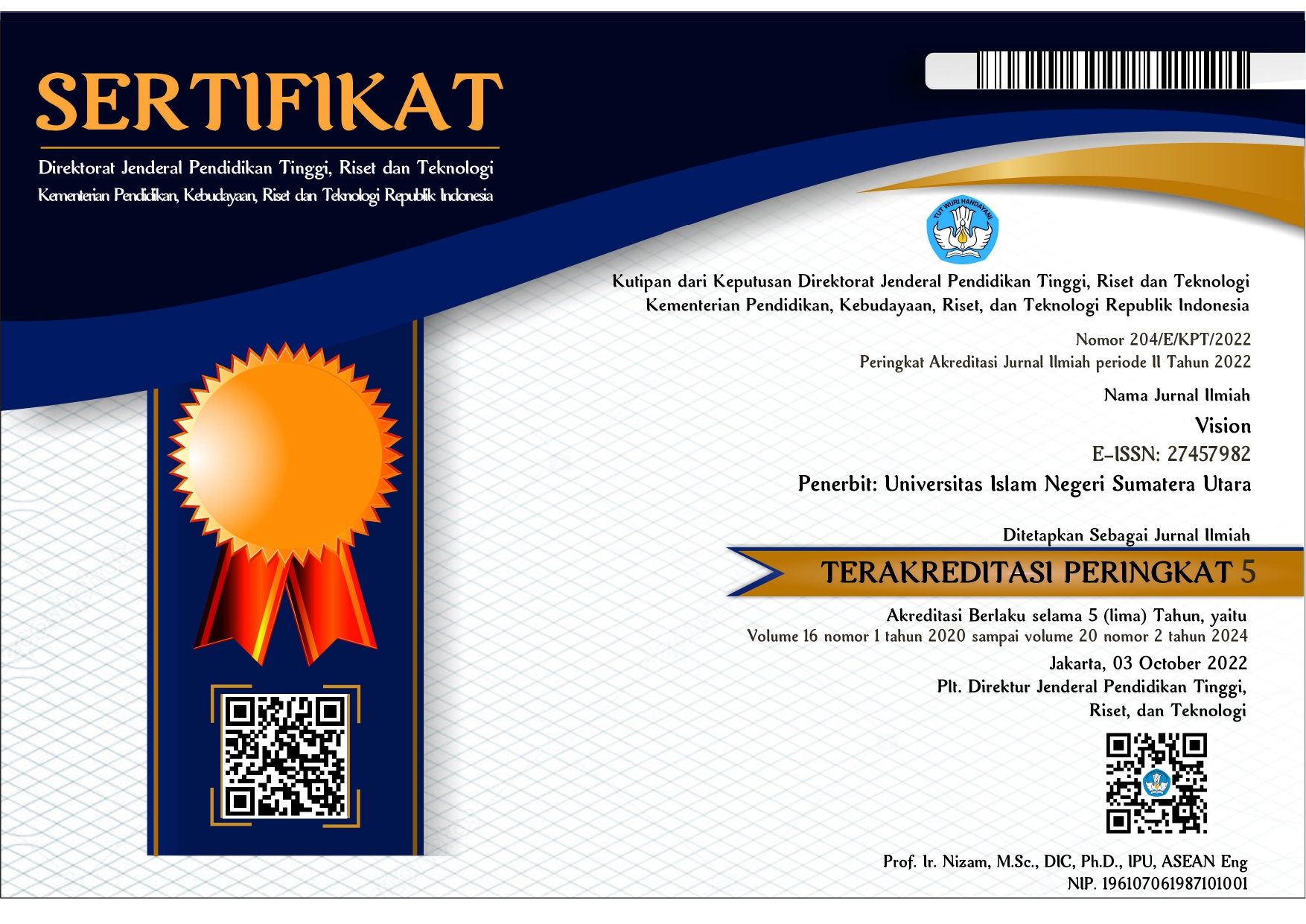THE HISTORICAL OF GROWTH ENGLISH FOR SPECIFIC PURPOSE
Abstract
Full Text:
PDFReferences
Anthony, L. (1997). English for Specific Purposes: What does it mean? Why is it Different? CUE, 5 (3), 9-10.
Carter, D. (1983). Some Propositions about ESP. The ESP Journal, 2, 131-137.
Evens, D & St.John, M. J. (1998). Developments in ESP: A Multi-Disciplinary Approach. Cambridge: Cambridge University Press. 4-5.
Gvardjancic, A., (2001). Introduction. in: Issues and Ideas: Problem-Based Learning, Slovenian Association of LSP Teachers (Gvardjancic, A.; Boothe, D.; Vukadinovic, N.), eds; Ljubljana. 7- 12.
Hadley, J., (2006). Needs analysis in ESP . In: English for specific Purposes in the Arab World (Lahlou, M S; Richardson, A), eds; TESOL Arabia : Dubai. 3- 6.
Howatt, A., (1984). A History of English Language Teaching , Oxford University Press: Oxford.
Hutchinson, T., and A. Waters, (1987). English for Specific Purposes: a Learning - Centered Approach , Cambridge University Press : Cambridge.
Hymes, D. M., (1972). On Communicative Competence. In: Sociolinguistics (Pride, J. B.; Holmes, J.), eds; Penguin Books. London. 269- 285.
Mackay, R.; Mountford, A. J. (1978). The Teaching of English for Specific Purposes: theory and practice. in: English for Specific Purposes: A case study approach. (Mackey, R.; Mountford A. J.), eds; Longman :London.
Strevens, P. (1988). ESP after twenty years: A re-appraisal. In M. Tickoo (Ed.), ESP: State of the Art. Singapore: SEAMEO Regional Centre. 3 -13
Zahid, J. (2000). English for Specific Purposes: Its Definition, Characteristics, Scope and Purpose.
DOI: http://dx.doi.org/10.30829/vis.v15i1.461
Refbacks
- There are currently no refbacks.
Copyright (c) 2019 VISION
















